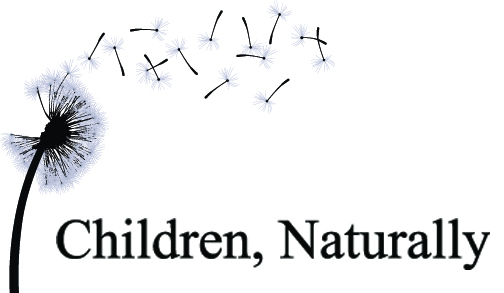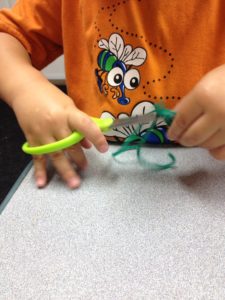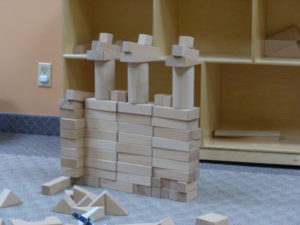A few years ago I had a personal trainer at the gym. We would go through the exercises and the various pieces of equipment and after each set, he would tell me “Good Job!” After hearing this continuously for an hour… session after session, week after week… I was ready to yell at him STOP TELLING ME GOOD JOB!!!! It could not have been that good of a job every time! I actually asked him once… what was so good about that?
When I think about how I felt after being told ‘good job’ over and over, I reflected on how often we say this to our children. Do they become annoyed like I did or are do they become addicted to it and want to hear it more and more, or do they just tune us out and like so many other things… the more we say it, the less effective it becomes?
Some children are becoming little praise junkies. They are those children who always need to show us what they are doing and creating. They can’t seem to complete any kind of play without calling your name to come and see…. ‘Oh Good Job’. These are the children who are hooked on that attention from adults and we need to cut the praise cord now!
I discuss with my staff and students about changing the way we talk with children. I challenge them and myself to think about what message you are really wanting them to hear. Finding other things to talk to children is my mission! We need to change our words from praise to encouragement.
What’s the difference between praise and encouragement? Praise is the ‘good jobs’, the ‘awesome’s’, all the ‘wonderful’s’ we give children without really seeing what they are doing. They are all the vague, non-descript, blanket statements we so often say. Praise is more focused on the end product and comes from the others. Praise can come in many forms. It can even manifest itself into rewards such as stickers and stars which bring another whole challenge! (but this I shall leave for another time!)
Encouragement is more focused on the effort, the process. It says you noticed and gave credit to how hard I am working on a task even if I can’t complete it or figure it out. Encouragement might even come in the form of a question.
A child cleans up his toys; “Thanks for cleaning up. I really appreciate the help.”
A child puts on her jacket all by herself; “You were able to that all by yourself.”
A child struggles to create a structure with blocks; “I saw you really worked hard on trying to figure out how to make those blocks balance. What ways did you try? Tell me about how you got it to work.”
A child trying to use scissors; “I saw you were very determined to figure out those scissors.”
A child having to wait for a toy; “you were very patient waiting until she was done with that toy. It’s har to wait sometimes.”
Research has proven children who are continuously told what a good job they are doing and how smart they are eventually stop trying. They are scared that they will fail and they will not be seen as smart anymore. Children who are encouraged continue to try new things. To them making mistakes is part of the process and not as failing. (Pink, Daniel, 2009)
The late, great Bev Bos was a true leader in childcare. She was known in her program for giving people a little pinch when she heard them saying ‘good ‘job’ to a child. Now, I would never resort to that but I must admit I do cringe a little inside whenever I hear an adult saying to a child, “good job”.
My challenge to you is to find another way to say good job to a child without actually saying ‘good job’.
The way we talk to children becomes their inner voice.
Peggy O’Mara



